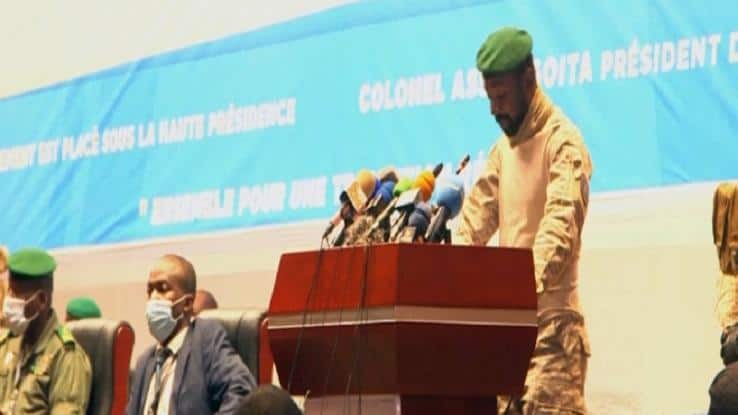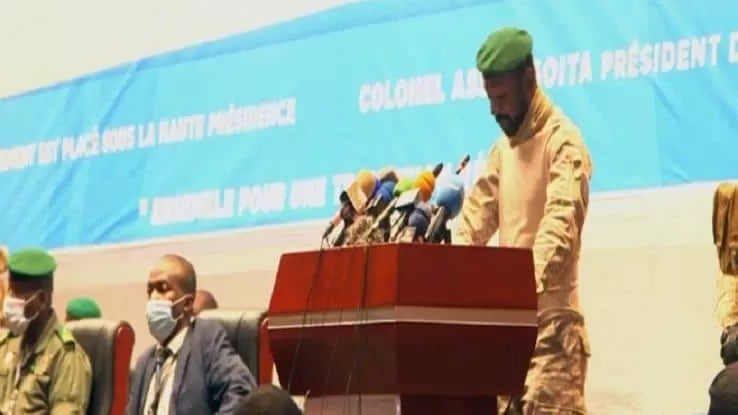

Last updated on September 11th, 2021 at 08:25 am
One and a Half Year Transition
The National Committee for the Salvation of the People (NCSP) junta coup leaders have decided, after three days of talks with the main opposition political entities and civil society groups, on a timeline for Mali’s return to civilian rule.
Moussa Camara, an NCSP official read the general agreement at a public address, “The duration of the transition is set at 18 months from the date of the investiture of the transitional president.”
The NCSP had promised to honour all international agreements on fighting Islamist extremist jihadists committing violent acts of terrorism in the region after ousting ex-président Ibrahim Boubacar Keïta.
A move welcomed by the Malian people — many of whom had staged a 3-month protest for his resignation as they denounced government corruption and a challenged economy.
Assimi Goita, head of Mali’s military junta, issued a public statement at a media-covered conference, “We make a commitment before you to spare no effort in the implementation of all these resolutions in the exclusive interest of the Malian people. We request and hope for the understanding, support and accompaniment of the international community in this diligent and correct implementation of the Charter and the transition roadmap. The results you have achieved allow me to hope for the advent of a new, democratic, secular and prosperous Mali”.
International Implications
The interim government would either be led by a military officer or a civilian for the duration of the transition. After which, presidential elections will eventually be held.
A decision that will not sit well with the Economic Community of West African States (ECOWAS) leaders who have repeatedly called for a maximum 1-year transition as a condition to lift the already imposed sanctions on the West African nation.
The M5 opposition movement has already outrightly rejected the charter.
Background
President Keïta was overthrown on 18 August following mass protests against his rule over corruption, the mismanagement of the economy and a dispute over legislative elections.
The coup sparked international condemnation, but it was welcomed by many Malians.
This was the fourth coup in the West African state since it gained independence from France in 1960.
(AFP)
Canadian companies have expanded their presence as major African mining stakeholders and invested more than $37 billion. Africa holds the…
The South African government wants people to plant one million trees across the nation within a single day on September…
The government's statistics regulator showed that South African inflation stayed at 3.2% during February and rose below the projected 3.3%.…
Keywords: Cape Town, African Energy Chamber, Africa, The 2025 African Energy Week (AEW) will host the top energy leaders from…
Recent research shows that Professor Abdessamad Faik believes Africa is at an important energy choice point as renewable-powered hydrogen allows…
The United States plans to shut down its Johannesburg consulate after Sandton Drive gets renamed to Leila Khaled Drive even…
This website uses cookies.